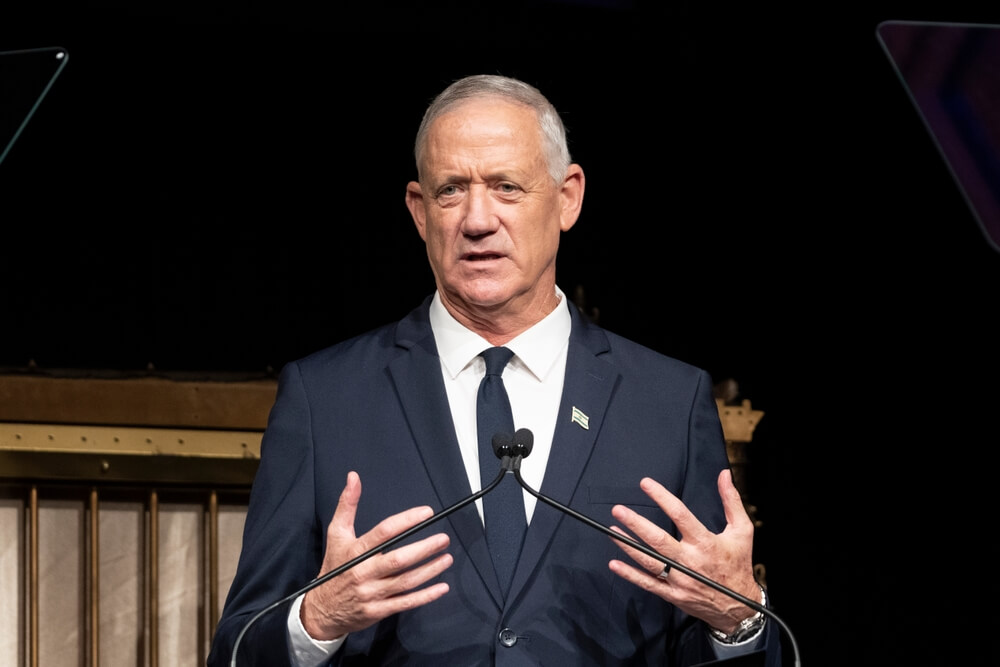Israeli PM Benjamin Netanyahu is wrong when he says that the US changed its policy towards Israel, manifested by Washington's refusal to veto the UN Security Council resolution on Gaza.
The US decision to allow the adoption of the resolution, which Israel opposed, does not mean a change in US policy towards Israel.
It is merely the most apparent manifestation of the long-running American effort to persuade Israel not to undermine the case for its fight against Hamas by disregarding the catastrophic humanitarian situation in Gaza.
That is why the "mistake" in Netanyahu's evaluation of the change in US policy is delusive because he is well aware that there has been no change in policy. Not even after the United States voted at the UN Security Council.
The Israeli PM has no right to be surprised by the US position at the UN, primarily because he is a super-experienced political leader who can assess someone's policy change long before it happens.
Second, Mr Netanyahu has been well informed about US positions first-hand since October 7th.
Antony Blinken, US Secretary of State, has since been in the region 6 times, including visits to Israel, and CIA director William Burns at least 8 times.
In the meantime, there have been countless meetings between Israeli leaders and other high-ranking people from President Biden's administration.
An unprecedented decision
The messages coming from Washington for months are not just signals that Netanyahu has to interpret. They are direct and clear and leave no doubt about the US position, just as President Biden emphasised in the State of the Union Address in early March:
“Humanitarian assistance cannot be a secondary consideration or a bargaining chip. Protecting and saving innocent lives has to be a priority."
That is why Netanyahu's decision to cancel the visit to Washington of his close associates Strategic Affairs Minister Ron Dermer and National Security Council head Tzachi Hanegbi is unprecedented.
It is an actual policy change but by Israel, not the US
This, from the point of view of the Israeli PM, was supposed to be "retribution" for the American abstention vote at the UN Security Council last Monday. It is an actual policy change but by Israel, not the US.
The Washington administration got it right because cancelling a high-profile visit at the last minute as a reaction to the UN vote is not a gesture of strategic friendship.
On the contrary, it is a personal move by Benjamin Netanyahu, motivated not by the interests of the state he represents but by his own political calculations.
The US separates its policy towards Israel and towards Netanyahu
He formalised the policy change by leaving 2 associates at home, not sending them to Washington for talks where American interlocutors were expected to offer alternative solutions to Israeli plans to take Rafah militarily.
Netanyahu's lightning-fast response to the American green light for the UN Security Council resolution marked the moment when the US policy towards Israel got clearly divided into 2 - the policy towards Benjamin Netanyahu and the policy towards the action of the State of Israel regarding Hamas and the Palestinians in Gaza.
The US administration will certainly not declare it publicly, but it is already moving in that direction. If the path for negotiating with Mr Netanyahu's government is blocked by its members' refusal to come to Washington, negotiations with Israel will continue unhindered through Defence Minister Yoav Gallant, who is in Washington on a separate visit.
"We will keep having conversations with our Israeli counterparts and doing the best we can to continue to share our perspectives with them" - John Kirby
“If there’s not going to be a delegation visit this week, then we will obviously keep having conversations with our Israeli counterparts and doing the best we can to continue to share our perspectives with them,” said John Kirby, the White House National Security Council spokesman regarding the conversation with Yoav Gallant.
Netanyahu sees his political stake in Rafah
Benyamin Netanyahu is taking significant steps towards completely ignoring American support, and with the latest cooldown, he shows that he is ready to give it up entirely.
He says that he is ready to pay that price and to continue in Gaza (particularly Rafah) without the US on his side because, on the other hand, he wants to gain from being uncompromising politically in the possible forthcoming elections.
His war cabinet is falling apart, and only the extreme right will remain loyal to him (and he to them), expecting that by destroying Hamas, regardless of the civilian casualties and the humanitarian disaster, he will have enough support at home to survive politically. But this calculation of his now certainly excludes US support.

Benny Gantz is suggesting that Netanyahu should travel to Washington for direct talks with President Biden to smooth out the dispute. But it's probably too late for that
Member of the war cabinet and Netanyahu's competitor, Benny Gantz convincingly surpasses Netanyahu's Likud in terms of popularity (40 seats in the Knesset to Likud's 18) because he personifies an alternative to the prime minister's aggressiveness and the destruction of the alliance with the US.
Mr Gantz is desperate because of the demonstrative cancellation of the high Israeli delegation's trip to Washington, suggesting that PM Netanyahu should travel to the White House for direct talks with President Biden to smooth out the dispute.
But it's probably too late for that. Netanyahu has already chosen the path of ignoring American pressure. On the other hand, the administration in Washington has shown that it has alternative channels for continuing its support for Israel but also for a compromise regarding the humanitarian crisis.